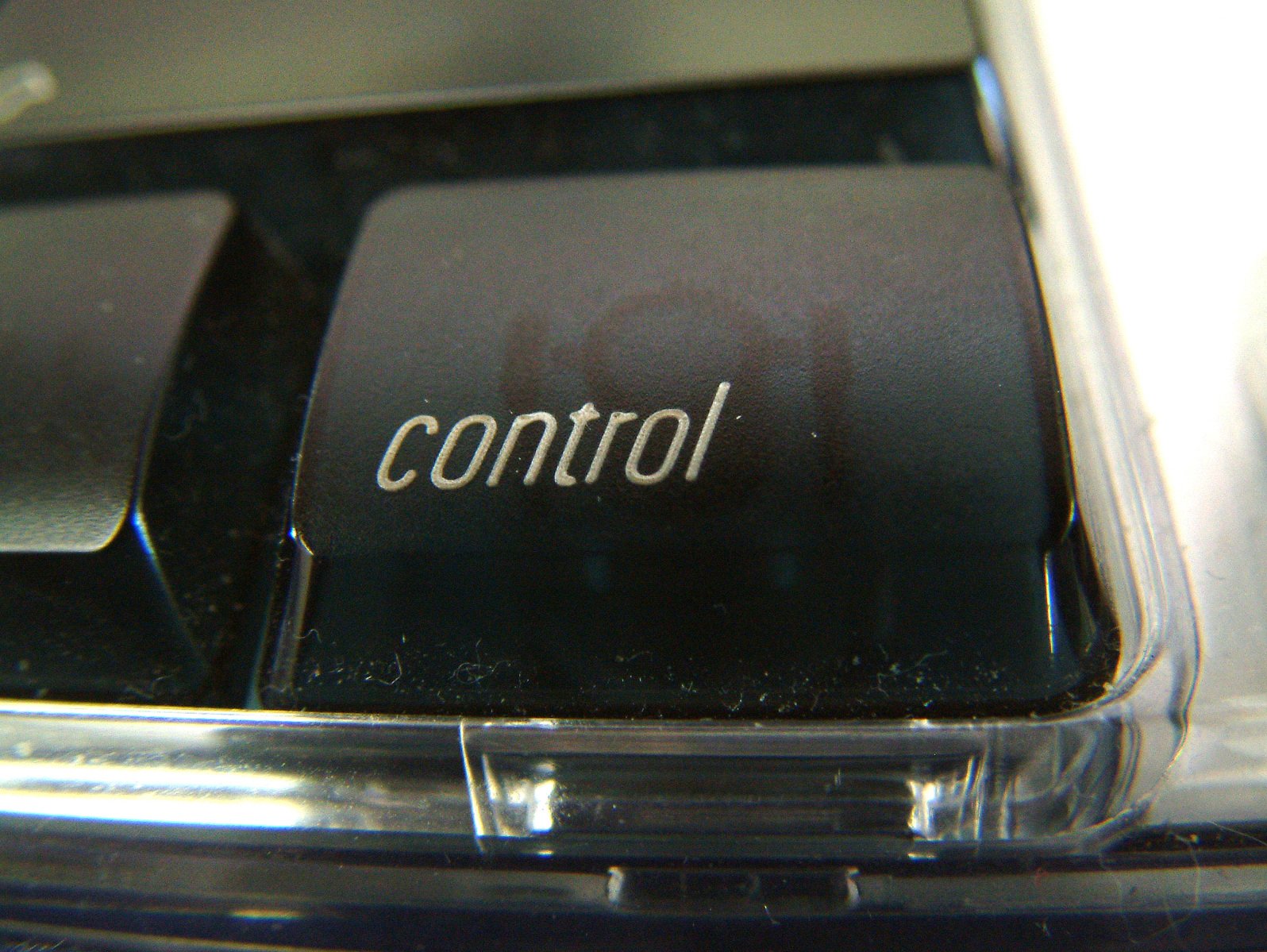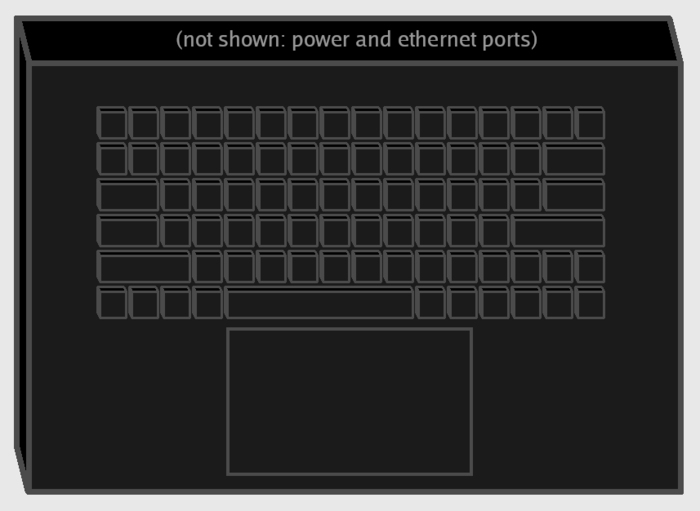

Chapter 2: Controlling Your Computing
In the early 1980s, freedom was a tan-coloured plastic slab that featured several cables and dark brown keys. I never owned a Commodore 64, but I did learn to code in BASIC on a PC.
"Far too much software is written around the idea that the designers know best. Which is funny, because most of us have never even met."If you had a floppy drive, you could save and load programs with it -- you could even purchase games made for the C64, which were typically more elaborate than something you would want to type in. There were magazines featuring simpler programs to type in and try out. Nobody could stop you from changing them, though they did not typically come with a license that allowed free redistribution.
The machine I'm typing this on is also a plastic slab covered in dark-coloured keys.

"What I don't want is Windows, which it came with. I actually removed it in the first 30 minutes I owned the thing."Ideally, computing should work this way as well; if you really don't like a feature, you should just be able to remove it. The machine is less portable now (at least while in use) but when I put it front of a larger screen, I don't have to worry about folding the laptop screen out or putting it somewhere that it isn't in the way. Its closer to what I want, rather than what the designers wanted.
The designers might explain that I have other options that make more sense to them; I could put it off to the side and use an external keyboard. And that's nice -- but I prefer this keyboard to my external, otherwise I would be using that.
I am well aware that I had other options than removing the screen. And I've actually used several of those options previously, out of not wanting to go to the extra trouble. But the thing is, this is my computer. The designers don't own it or have to use it -- I do. And my obligation on how to use my computer is to myself, not to them.
Far too much software is written around the idea that the designers know best. Which is funny, because most of us have never even met.
"At the very least, I want to be able to type things and save files — I usually want a machine to able to get on a network as well."If I were to design this machine for someone like myself, I would have made the screen easier to remove and reattach. You would be able to get the screen in a plastic case, rather than one designed to go into a plastic case; it would have a thin cable on the outside, and an external connector (like a desktop monitor) -- and you would be able to remove the hinges without opening the rest of the laptop.
Most laptops wouldn't be made that way though, because it would add to the cost and people wouldn't want to save the difference. Instead, they pay a lot more to fix it if it breaks. Regardless, I managed to detach the screen and get the thing back together. Sometimes Free Software works this way; lately it doesn't work that way often enough.
They do make a few portables that have detachable screens, but the screen isn't really what detaches -- what it really disconnects is the keyboard. The screen is still attached to the part that does the computing; this converts it to a tablet, but (unlike this machine) all the parts that do the computing are packed too tightly together.
Besides, I got this thing because nobody wanted it anymore, and they didn't even want to bother to sell it online. I got it for less than $100.
If I want to turn this machine on and have it do anything, there's no chip with BASIC on it -- it needs an operating system. At the very least, I want to be able to type things and save files -- I usually want a machine to able to get on a network as well.
What I don't want is Windows, which it came with. I actually removed it in the first 30 minutes I owned the thing.
"A computer running Windows is a computer that Microsoft has more ownership of than the person who bought the computer."Windows and MacOS are not yours -- you don't control updates, Microsoft and (maybe) Apple do. You can't copy and share them, you cant make changes and share those either. A computer running Windows is a computer that Microsoft has more ownership of than the person who bought the computer. So if you want your computer to really be yours, you first have to remove the stuff that Microsoft put there. And that means you need to be able to install different software in its place.
Not everybody feels ready to do this -- it's an adventure, and it doesn't always work the way you hope. Even before I installed anything, I was running a different OS off a USB stick -- this gave me some idea of what it would be like to install something other than Windows. We've gone from running BASIC from a chip to booting a completely different OS from a chip -- only now the chip is in a fob that you can attach to your housekeys.
Although we eventually want equipment that we are free to design, modify and share, manufacturing costs and industry processes still make this mostly prohibitive. We at least want our software to be free, and for a while, that was possible. We want software to be free again, so let's talk about what made it free, what made it less free, and what could hopefully improve in the future.
But first, let's talk about the role that education plays in making you less free. ⬆
Licence: Creative Commons CC0 1.0 (public domain)